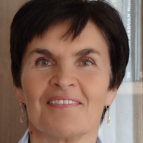Centenary of Community-Based Psychiatry: Landmarks and Perspectives
The international scientific and practical conference “Centenary of Community-Based Psychiatry: Landmarks and Perspectives” was held under the auspices of the World Psychiatric Association (WPA) and the Russian Society of Psychiatrists (RSP) with the support of the Union for Mental Health of Russia from 16 to 18 may 2019 in Moscow, Russia.
In line with the WHO European Mental Health Action Plan (2013-2020), all countries in the European region are developing strategies to move from predominantly hospital-based mental health care to outpatient care. Many countries have a network of district outpatient mental health centres serving local residents. The tasks of outpatient psychiatric service are prevention, treatment, psychosocial rehabilitation. However, the process of creating a full-fledged outpatient mental health service is quite complex. In order to achieve these goals, it is necessary to exchange experience and ideas between specialists.
Russian psychiatry developed in both directions – both outpatient and inpatient forms of care. The first outpatient psychiatric service appeared in Moscow in 1919. In 2019 Russia is celebrating 100 anniversary since its foundation.
The conference was attended by leading Russian and foreign psychiatrists who summed up the work of psychiatric services around the world, exchanged ideas and experiences to improve the quality of psychiatric care, including Norman Sartorius (Switzerland), George Kostyuk (Russia), Wolfgang Gebel (Germany), Nikolai Neznanov (Russia), G. Thornycroft (UK), Peter Morozov (Russia), Oleg Limankin (Russia) and others.
A special place in the program of the conference was taken by the Symposium “Non-profit services in the system of mental health care”, which discussed the role of NGOs and society in the system of non-hospital mental health care. NGOs, represented by a variety of organizational and legal forms, the totality of which are heterogeneous in their property characteristics and the structure of services produced, represent the interests of a certain group of people with mental characteristics and well understand their needs. This allows NGOs to effectively perform both the functions of providing services and mediation between the state, society and business in the field of psychosocial rehabilitation. In accordance with the mission, NGOs perform socially significant tasks, where the main position is occupied by a person suffering from a mental disorder in all its complexity and uniqueness, able to play an active role in their own treatment and rehabilitation, and where this person is given a real opportunity to exercise their civil rights and preserve the diversity of personality traits.









